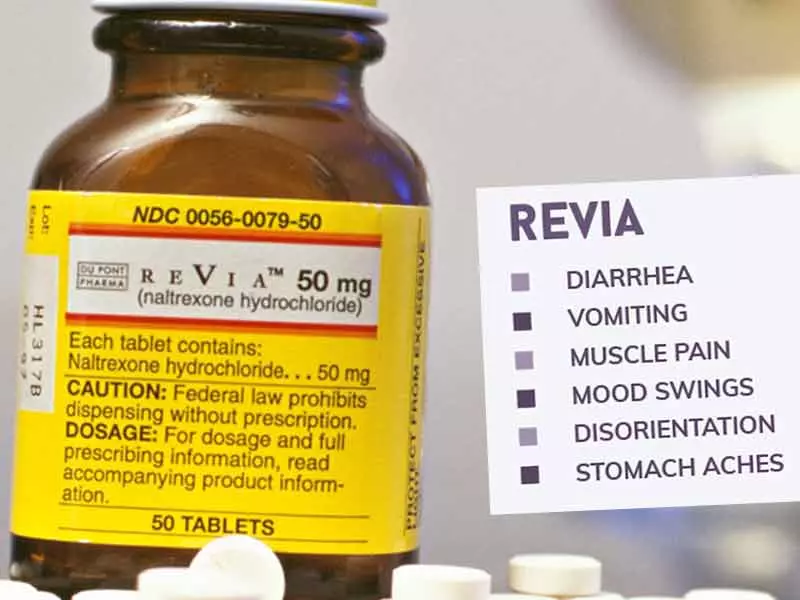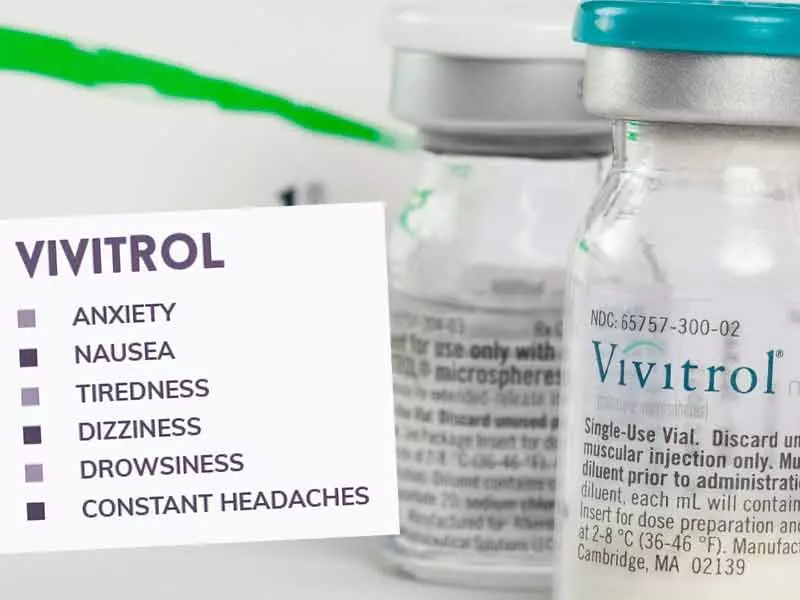Naltrexone Side Effects
What is naltrexone?
Originally, naltrexone is an opioid antagonist, and it can be taken orally or injected to help opiate addicts and alcoholics stay clean and sober. As any medicine, naltrexone can have a number of side-effects which may require medical attention in some users, while others will experience no unpleasant reactions at all. It means that naltrexone is not for everyone. Before you make the decision to use naltrexone, talk with your doctor about how to identify and avoid side effects.
Who are recommended or not recommended to use naltrexone?
!banner!
You should clearly understand that naltrexone in itself cannot help you fight against any addiction; it is only effective in a complex treatment program which combines drug taking with psychotherapy and social adaptation in groups like Alcoholics Anonymous. To be able to pass all this, a patient should have a strong motivation to recover.
Naltrexone is definitely contraindicated
- to those who have an allergy to it and
- to pregnant, nursing or planning to become pregnant.
Side effects

Possible side effects depend on the dosage forms (tablets or injections) and sizes.
In low dosage, the side effects of naltrexone are often just uncomfortable like poor appetite or changes in sleep; however, some side effects can be life threatening. If you notice any of the following symptoms, consult your doctor as soon as possible:
- Nausea or vomiting
- Stomach cramps
- Diarrhea
- Headaches
- Dizziness
- Anxiety
- Sleep disturbances
- Fatigue
- Muscle or joint aches
- Rashes.
In large doses, naltrexone can be dangerous for the liver. If you notice any of the following symptoms, contact your doctor right away:
- Extreme fatigue
- Appetite loss
- Unusual bruising or bleeding
- Pain in the right upper abdomen
- A yellowish color in your skin or eyes
- Dark urine
- Confusion
- Depression.
Injections of naltrexone (Vivitrol) may result in the following reactions at the injection site after receiving a shot:
- Pain
- Swelling
- Hardening
- Bruising
- Redness
These reactions are usually short-term and not dangerous. They should soon go away.

Final recommendations
Please note that a naltrexone overdose can be fatal; if you have taken too much of this drug, immediately seek for medical help or call 911. Remember that drinking alcohol or taking opioid drugs while you’re on naltrexone may cause a coma or death. Use naltrexone only as prescribed by your doctor to get the maximum benefits with minimal side effects.